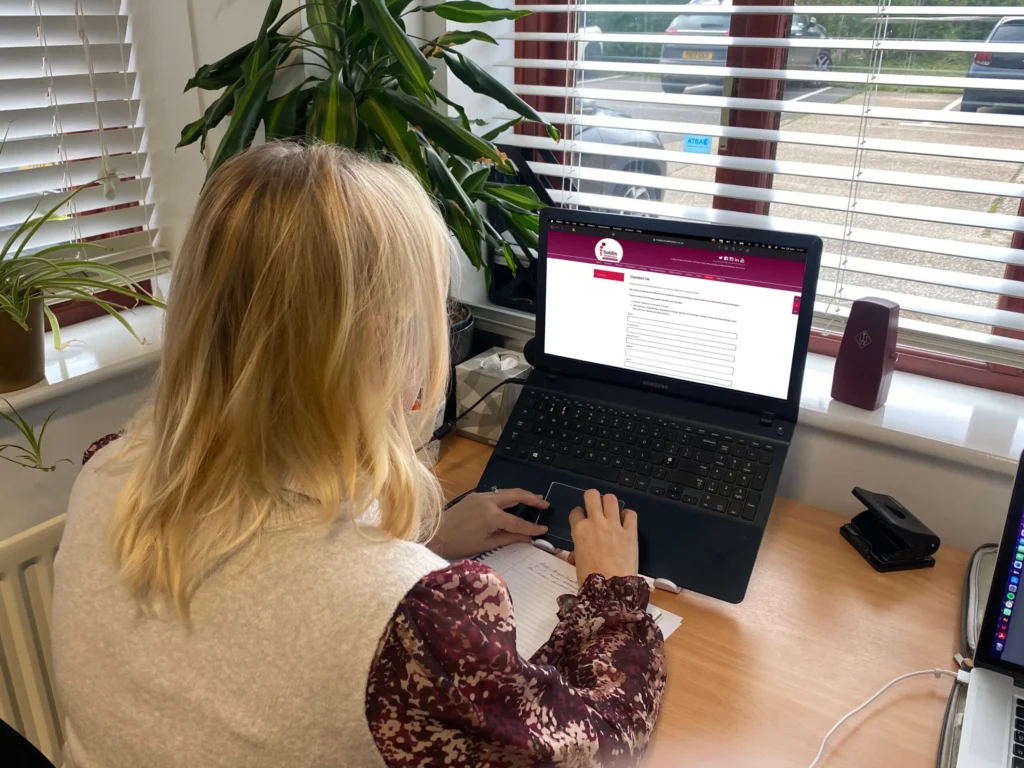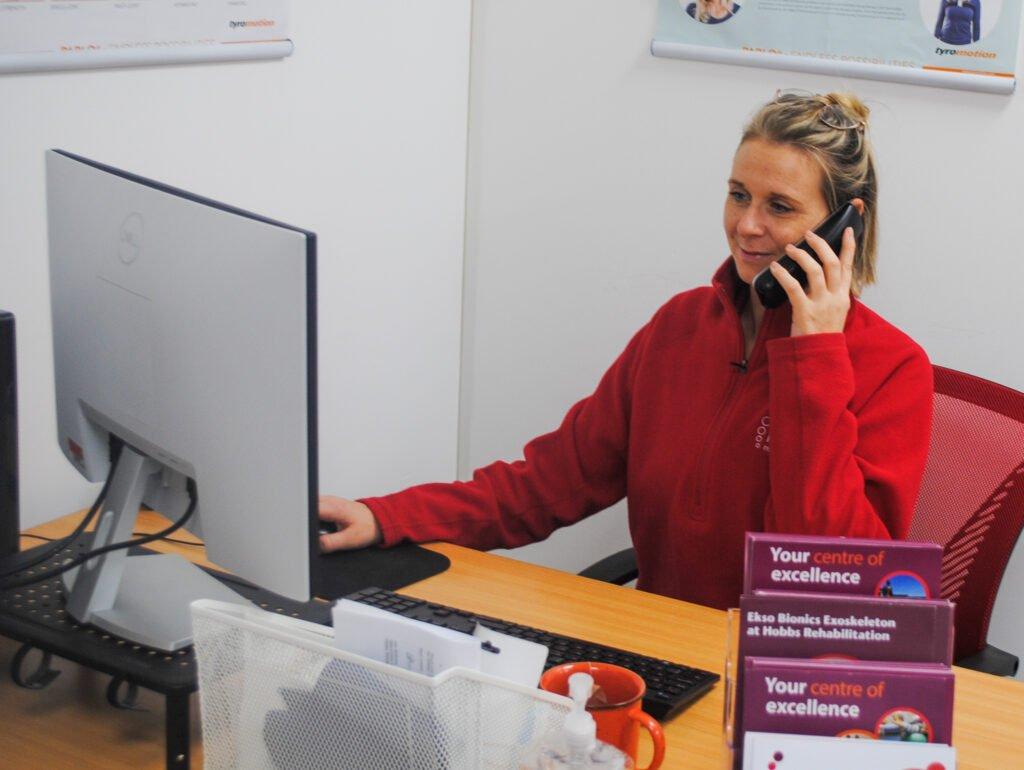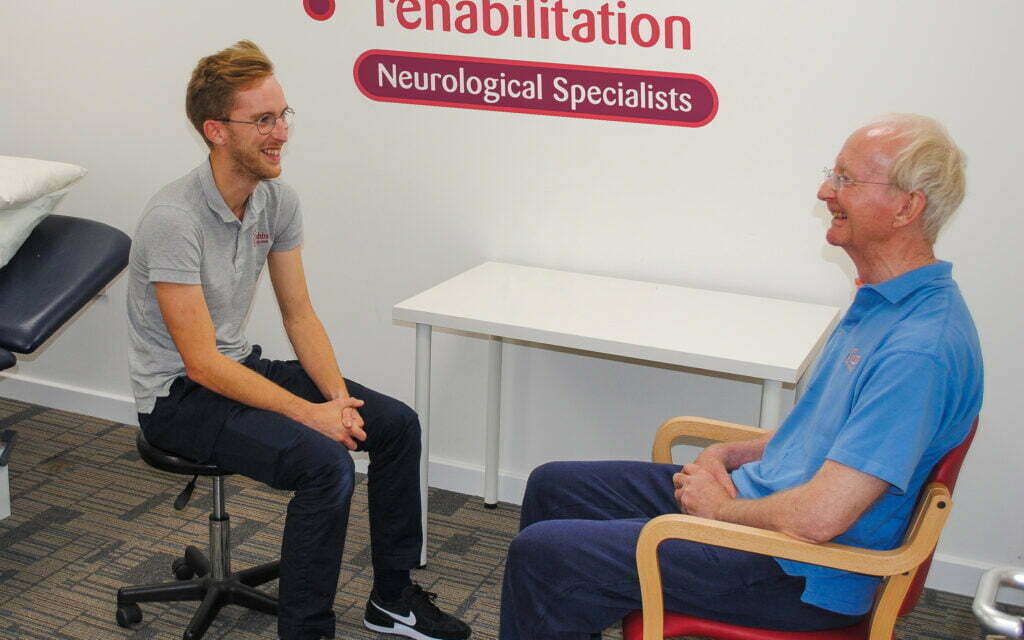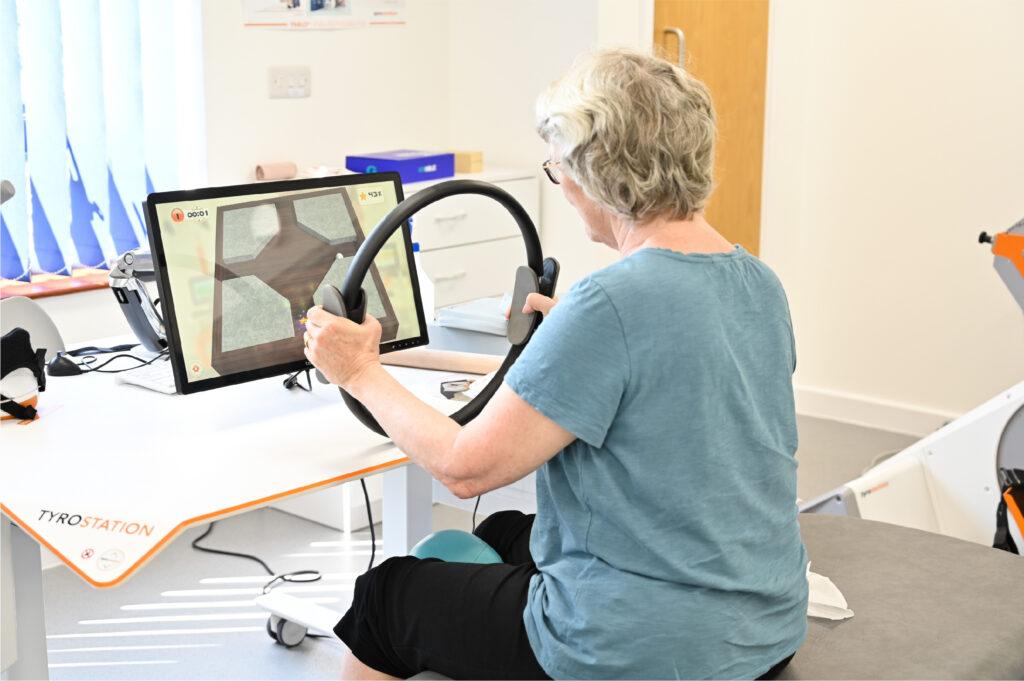Specialist neurological rehabilitation for individuals facing the challenges of facial palsy, guiding them through every step of their recovery journey.
Our specialist speech and language therapists are committed to helping individuals with facial palsy regain control and confidence in their facial movements. Facial palsy, also known as facial paralysis, is a condition characterised by the weakness or paralysis of the muscles on one side of the face. At Hobbs Rehabilitation, we understand the unique challenges faced by individuals with facial palsy and offer specialist treatment programs. Our team of experienced professionals aim to improve facial function, restore confidence, and enhance quality of life.
Hobbs Rehabilitation provides rehabilitation to treat all types of facial palsy. It’s important to seek treatment from therapists specially trained in facial palsy rehabilitation because the facial nerves and muscles do not behave in the same way as other nerves and muscles in the body. Seeing a therapist without this special training can potentially harm your recovery and cause further complications. The Facial Therapy specialists at Hobbs Rehabilitation are trained in treating facial palsy at each step along the recovery journey, from acute care to chronic with synkinesis. They are members of Facial Therapy Specialists International.
Facial palsy rehabilitation at Hobbs Rehabilitation can be accessed online from the comfort of your own home or at our outpatient centres and facilities which include Hobbs Rehabilitation Intensive Neurotherapy Centre, South East, Winchester, Oaksey House and SportBU.
Facial palsy occurs when the facial nerve becomes damaged, and can’t send messages to the muscles on that side of the face. The nerve has become ‘unplugged’ from the facial muscles. This can happen due to a variety of disorders or conditions:
The palsy can affect half of the face, some of one half, or in rare circumstances both sides of the face. Taste, hearing, tear production and saliva production can also be affected, as well as the movement of muscles in the face.
Facial weakness can occur after a stroke, and this tends to affect the lower half of one side – the opposite side to where the damage was in the brain.
Facial Palsy Assessment
You will begin with a one-hour specialist facial therapy assessment. Your therapist will ask you questions to find out more about your facial palsy, what treatment you’ve accessed and what your biggest difficulties are. Your facial movements will be assessed which will help direct your treatment. The therapist will also take photographs of your face, as a record of your baseline to then compare with subsequent images as your treatment progresses.
Facial Palsy Treatment
Facial palsy therapy is determined by what stage of recovery you are at. Therapy can involve understanding how the nerves and muscles in the face work, massage, releasing tight muscles and retraining normal movement patterns. The therapist will give you a programme to follow, and check in on you at intervals – you will gain the most benefit if you follow this programme daily.
We offer our facial palsy services online or at Hobbs Rehabilitation Intensive Neurotherapy Centre (Bristol), South East (Liss), Winchester, Oaksey House in Lambourn and SportBU in Bournemouth – find your nearest centre.
Alternatively, call us on 01962 779796 to talk with our team or fill out our enquiry form on our contact page.
We accept self-referrals and referrals from Medico-Legal, health and social care professionals and the charity sector.

Enquire today about any of our services or packages

You will be contacted to determine your needs and assessment location

Your therapist will recommend the best course of treatment

Once you have booked you will be ready to start your treatment plan.
Don’t just take our word for it – take theirs